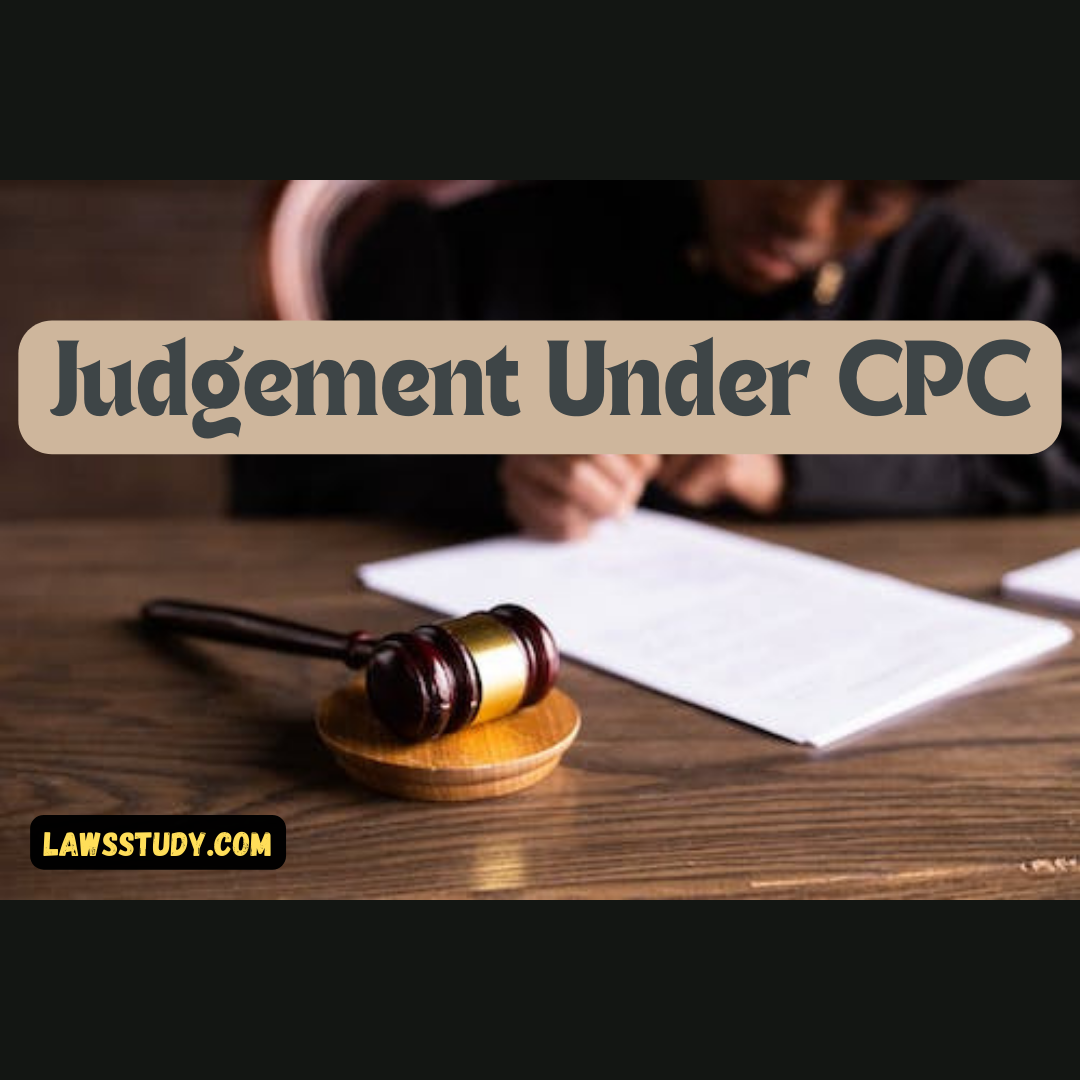Judgement Under Civil Procedure Code 1908
Judgement, as per Section 2(9) of the Code of Civil Procedure, 1908, encompasses a comprehensive account of a case, detailing its facts, involved issues, presented evidence, and the court’s findings on those issues based on the arguments and evidence provided. Each judgment must include a condensed version of the pleadings, the identified issues, the court’s findings on each issue, the legal principle applied (ratio decidendi), and the court’s granted relief.
The judicial system witnesses a multitude of judgments daily, leading to the resolution of various cases. These judgements hold significant importance in shaping the judicial process as they establish precedents for future cases. When delivering a judgment, a judge consistently outlines the reasons behind the decision.
Definition of Judgement
Section 2(9) of the Code of Civil Procedure, 1908 defines judgement as a comprehensive account of a case, including facts, issues, evidence, court findings, legal principles, and granted relief.
Each judgment establishes precedents for future cases and plays a crucial role in shaping the judicial process.
Pronouncement of a judgement
In the legal realm, the term “pronouncement” denotes the official public announcement of a decision. When a judgment is pronounced, it signifies the culmination of a court hearing, where the judges publicly declare their decision either immediately or at a later date after notifying the involved parties or their legal representatives.
According to the procedural norms, if a judgement is not immediately pronounced, it must be declared within 30 days from the conclusion of the hearing. However, under exceptional circumstances such as bank holidays, strikes, or other extraordinary situations, this timeframe may extend to 60 days. Notably, it is not obligatory for a judge to recite the entire judgment; a succinct delivery of the final order suffices.
Furthermore, Rule 2 of Order XX in the Code of Civil Procedure, 1908 empowers a judge to pronounce a written judgment that was not announced by their predecessor. The judge appends their signature and specifies the date on which the judgment was pronounced, ensuring transparency and adherence to legal protocols.
Following the Amendment Act of 1976, a specific timeframe was introduced between the presentation of arguments and the formal pronouncement of judgments. Before this amendment, no such timeframe was specified. The establishment of this time limit was prompted by a persistent demand from various regions across India.
Copy of the judgement
Upon the pronouncement of a judgement, parties are entitled to promptly obtain copies of the said judgement. The interested party seeking a copy is required to pay the specified costs, as outlined in the rules and orders established by the High Court. This provision is articulated in Order XX Rule 6-B of the Code of Civil Procedure, 1908.
Contents of the judgement
As per Rule 4 of Order XX in the Code of Civil Procedure, 1908, the components of a judgement are delineated as follows:
For judgements rendered by a Court of Small Causes, satisfaction is derived if they encompass the points for determination along with the corresponding decisions.
For judgements from other Courts, the requisite elements are:
- A concise summary of the pleadings, serving as a brief statement of the case.
- Identification of issues, representing the focal points for determination.
- Detailed findings on each issue and the resultant decisions.
- Articulation of the ratio decidendi, elucidating the reasons underlying the decision.
- Specification of the remedy granted, denoting the relief provided.
Concerning the alteration of a judgement, relevant details and procedures would be expounded in applicable legal provisions and rules.
Modification or Amendment of Judgement
After a judgment has been dated and signed by the judge, modifications or amendments can only be made in the presence of specific conditions, including:
Correction of arithmetical or clerical errors. Clerical errors involve mistakes made by clerks, while arithmetical errors relate to inaccuracies in numerical operations like addition, subtraction, multiplication, and division.
Rectification of errors resulting from accidental slips or omissions. These errors occur when essential elements are inadvertently overlooked. This correction process can be initiated through a review, as outlined in Section 152.
In adherence to legal provisions, particularly Section 114, these specified circumstances serve as the authorized grounds for altering a judgement subsequent to its date and the judge’s signature.
Frequently asked questions
What is a judgment in the legal context?
In the legal context, a judgment is a comprehensive account of a case, detailing its facts, issues, presented evidence, and the court’s findings based on arguments and evidence. It includes a condensed version of pleadings, identified issues, the legal principle applied (ratio decidendi), and the relief granted.
What are the key components of a judgment?
According to Rule 4 of Order XX in the Code of Civil Procedure, 1908, the key components of a judgment include a concise summary of pleadings, identification of issues, detailed findings on each issue, articulation of the ratio decidendi, and specification of the remedy granted.
What does the pronouncement of a judgment entail?
The pronouncement of a judgment is the official public announcement of a court’s decision. It signifies the conclusion of a court hearing, where judges declare their decision either immediately or within a specified timeframe. If not immediately pronounced, it must be declared within 30 days (extendable to 60 days under exceptional circumstances) from the conclusion of the hearing.

























